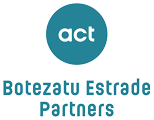Purpose: Measures to ensure adequate protection against the SARS-CoV-2, as well as provisions to change and improve the emergency situation management.
Main measures
- Civil protection and emergency situation management:
- New definition of the state of alert as the response to an emergency situation of a particular magnitude and intensity, determined by one or more types of risk (g. force majeure caused by fire, earthquakes, mass illness), consisting of a set of temporary measures, proportional to the level of severity manifested or predicted and necessary for prevention and removal of imminent threats to life, human health, the environment, important material and cultural values or property.
- The state of alert can be declared through Government Decision subjected to the approval of the Parliament when it is instituted on more than half of the territorial administrative units of the country;
- The state of alert can be instituted for 30 days with the possibility of extension;
- Definition of measures that can be taken during the state of alert to:
- increase the response capacity (acquisition of goods, redistribution of resources, coordination);
- ensure the resilience of communities (temporary evacuation, aids, measures to protect life and to limit the risk);
- reduce the impact of the type of risk (restriction or prohibition of meetings, of the movement of persons, limitation, or suspension of the activity of economic operators, temporary closure of state border).
- Measures can be taken for the suspension of the activity of restaurants, hotels and commercial centers;
- Possibility to institute the obligation to wear protection masks.
- Labour:
- Prohibition of the declaration, initiation, or development of collective labour disputes in essential sectors (energy, telecommunications);
- Provisions for the assurance of continuation of work in the public sector;
- Prolongation of the validity of labour contracts;
- Possibility of employers with more than 50 employees to establish individualized work programs, without the employee’s consent, so as to ensure the existence of an interval between employees beginning and end of the work schedule;
- Possibility of employers to decide, with the consent of the employee, carrying out of the activity in telework or work from home regime, change of job or duties;
- Possibility of public institutions involved in combating the COVID-19 to order secondment with the prior consent of the employee and the seconding employer.
- Measures in the fields of:
- education and research (g. the teaching activities that require physical presence in educational units may be suspended),
- insolvency (g. the insolvent debtor’s obligation to submit a request to the court to be subject to the provisions of the Insolvency Law is not applicable during the state of alert),
- transportation (g. in the field of air transport measures may be imposed, such as: hygiene and disinfection of common areas, equipment, means of transport and aircraft, procedures and protocols inside airports and certain rules of conduct);
- Institution of contravention fines for the breach of certain obligations, ranging from RON 500 to RON 15,000.
